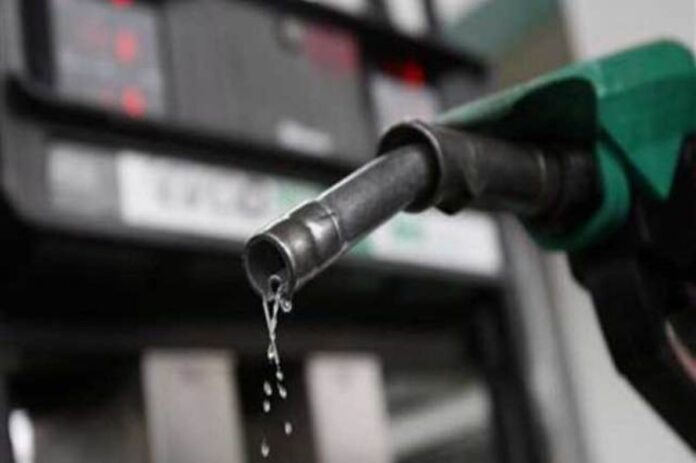Some Nigerians on Thursday in Lagos commended the Federal Government for reducing the pump price of Premium Motor Spirit (PMS), otherwise known as petrol, from N145 to N125 per litre.
The price reduction followed the drop in crude oil prices which had lowered the expected open market price of imported petrol below the official pump price of N145 per litre.
President Muhammadu Buhari gave the approval for the reduction in the price of PMS which was said to be a direct effect of the crash in global crude oil prices.
The Executive Secretary of Anti-Corruption and Research Based Data Initiative, Chief Dennis Aghanya, described the decision as “”very timely’’.
“The decision is very timely for the masses to be able to cope with the impact of the global economic devastation arising from COVID-19.
“It is also a sincere reaction to market forces and a part of steps of an administration determined to rewrite the grievous and foundational mistakes which are hurting us as a country now.
“Ordinarily, one would have wondered the source of courage for the government to implement this policy at a time our revenue has dropped even far below expectation because of the fall in price of crude oil.
“This is even when it is still battling on how to meet up with the benchmark to be able to finance the 2020 budget,” he said.
Also speaking, Prof. Wellington Oyibo, Head, African Networks for Drug and Diagnostic Innovation (ANDI), an NGO, described government’s response as “very commendable”.
“The response from government is very commendable. Economy drives the life of people and how they respond to situations.
“The action will reduce prices of transportation of goods and services and still leave people with money for some other things.
“But, the over all of this is for governments to see how it can reduce out of pocket expenses for health, this is very essential,” Oyibo said.
The Managing Director, BIC Consultancy services, Dr Boniface Chizea, however, said the pump price reduction ought to have come before now.
“That is what should be expected when we say that we are going to deregulate the price of petroleum.
“We did so in the expectations that when the price goes up, we are going to pay more and when the price falls like it has fallen now, a pump price reduction should be reflected.
“So, that has been part of the expectations.
“But quite some time now, that has not happened, we never had any reduction. I think that this is a welcome development that should be commended,” he said.
Meanwhile, the Nigeria Employers Consultative Association (NECA) has commended the Federal Government for reducing the price of petrol, describing the development as welcome.
NECA Director-General, Mr Timothy Olawale, said that President Muhammadu Buhari, had, therefore, approved that Nigerians should benefit from the reduction in the price of petrol.
Olawale urged government to henceforth allow the international price of crude oil to determine the prices of petroleum products in Nigeria, stressing that the template should be flexible to accommodate changes as they may occur.
“The price of PMS and other petroleum products could have been much lower if the pricing template had been rigorously followed and applied.”
The director-general, however, called for caution since Nigeria is a mono-product economy hinged on oil.
He urged the government to ensure total eradication of the subsidy regime in whatever form in the country.
“Energy consumption subsidy is any policy by the government that is aimed at reducing the price of energy consumed by citizens relative to what the price would have been in the absence of such policy.
“The regulated price, arguably, will reduce the Consumer Price Index (CPI) and make it easy to regulate the level of inflation.
“Subsidy often leads to increase demand for PMS due to over use and waste arising from reduced price of the product, creating unnecessary shortage of supply,” he said.
The NECA chief also urged the government to provide leadership and direction in diversifying the economy.
According to him, the nation cannot hinge its destiny on the price of a commodity in which it has no control on the pricing.
“It is time to deliberately create a roadmap for a rapid diversification of the economy away from oil.
“We need actions; the government needs to create avenues for more economic activities to happen like diversifying the tax revenue of the government beyond oil.
“The shortfall in oil prices should not be a licence to further mortgage the future of the nation with borrowing as the budget is already struggling under the weight of debt service,” Olawale said.
Meanwhile, the compliance level of some petrol stations around Ikotun and Ejigbo Local Council Development Area is poor.
At the NNPC filling station in Ejigbo, fuel is now sold at N125 per litre, the change has also been effected on its signboard, same at PetroCam, Ilepo, Ejigbo.
The Mobil Filling station, Hostel Bus Stop and First Royal petrol station, Ikotun Egbe, had yet to start selling at the approved price as at the time of filing this report.




